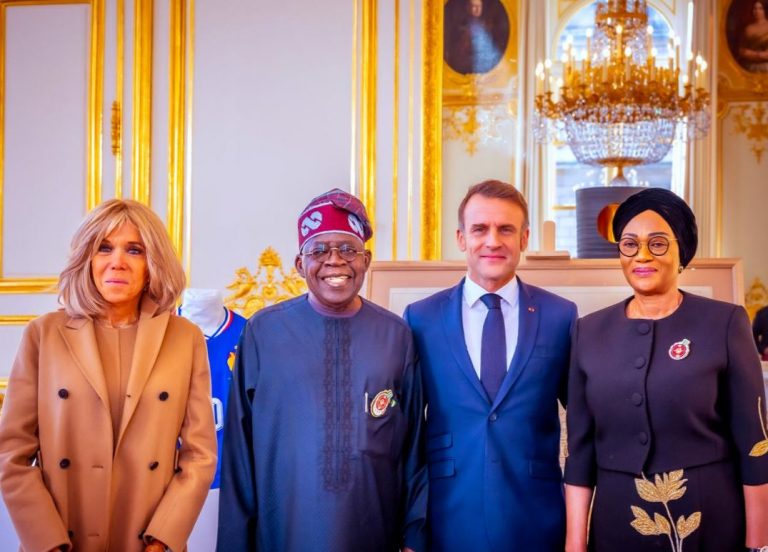President Bola Tinubu has reiterated his administration’s commitment to addressing Nigeria’s educational crisis by reducing the number of out-of-school children through innovative initiatives and skills development programmes.
Speaking at the Élysée Palace in Paris during a dialogue with French President Emmanuel Macron, Tinubu outlined his government’s plans to reintroduce school-age children to classrooms while equipping older students with practical skills to bridge learning gaps.
### **Education as a Cornerstone for Development**
Accompanied by First Lady Senator Oluremi Tinubu, the President emphasized the link between education and national development. He stressed that fostering a well-educated populace is critical to Nigeria’s progress.
“In order to bridge the gap for those who are older and have been out of school for a while, we will encourage skills development,” Tinubu stated.
He also acknowledged the impact of insecurity on school attendance but noted that ongoing efforts to enhance security have begun to repopulate classrooms.
“We are gradually re-populating classrooms. No child should go to bed hungry in the 21st century,” Tinubu added.
### **French-Nigerian Collaboration**
President Macron praised Nigeria’s efforts to address its educational challenges and shared his personal connection to the country, recalling his internship at the French Embassy in Nigeria where he visited Lagos and Kano states. Macron pledged to deepen relations between France and Nigeria, particularly in education and development sectors.
### **The Education Crisis in Nigeria**
Nigeria faces a daunting challenge, with an estimated 18.3 million children currently out of school, according to a May 2024 UNICEF report. The crisis is most severe in the northern states, including Kano, Sokoto, Kebbi, and Yobe, where out-of-school rates exceed 60%.
Contributing factors include economic hardship, inadequate infrastructure, cultural barriers, and insecurity, compounded by attacks on schools and frequent kidnappings that have forced many to shut down.
### **A Holistic Approach**
The Tinubu administration’s strategy combines educational re-integration initiatives with skills acquisition programmes tailored to older children and adolescents. The government is also enhancing security measures to ensure safe learning environments and improve agricultural stability to combat hunger.
President Tinubu concluded his remarks by reaffirming his vision for a future where every Nigerian child has access to quality education, describing it as a fundamental right and a key driver of national stability and growth.




